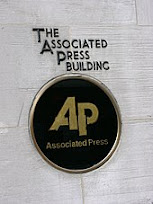 |
Universal History Archive Planting crops through broadcasting. |
The first sporting event to ever be broadcasted over the radio was a boxing match between Johnny Ray and Johnny Dundee on April 11, 1921. Boxing was a great sport to start with in regard to introducing the radio to fans of sports because it was easy to follow with only two people fighting in the ring and it was a popular sport at the time.
 |
The Lost Media Wiki Newspaper covering the match between Ray and Dundee. |
 |
| Bob Fulton University of Pittsburgh vs. WVU. |
The excitement around college football also helped increase the usage of radios because more people bought them to listen to the games, allowing for radio stations to convince advertisers that it was worth paying for their ads to be included in the broadcast. With an increase in advertisements and more people tuning in on the radio, radio stations and college football generated lots more money.
People still wanted to go see sporting events for themselves even with the radio being introduced. But attendance at games didn't drop drastically like many athletic departments feared.
TV being introduced into the world of sports led to more concerns from the athletic departments because they were fearful that people would much rather watch games in the comfort of their homes instead of spending money at stadiums.
 |
gocolumbialions.com Cameraman filming a game between Columbia and Princeton. |
College football gave TV a shot and the first college football game broadcasted was Fordham vs. Waynesburg on September 30, 1939.
From there TV took off with Notre Dame football getting an exclusive deal with DuMont Presentation and UPenn gaining an exclusive deal with ABC in 1950. Other teams couldn't get coverage with these restrictive contracts.
 |
Brendan Conroy NCAA controlling college football. |
Other teams wanted to take advantage of selling ads and gaining sponsorships from commercials and they were fed up with only one game being shown every Saturday. This led to an antitrust case against the NCAA in 1984 because they were controlling all of the teams' schedules and the teams didn't generate much money from TV coverage.
NCAA v. Board of Regents of Oklahoma, Georgia and Arkansas provided teams in the current age to generate a lot of revenue from TV by having multiple games on certain days in the week. The NCAA didn't have overall control anymore over the TV aspect of the game and teams could now negotiate their own schedules and individual rights.
The effects of radio and TV were tremendous for teams to generate money and for fans to enjoy a variety of games in numerous ways.
 |
vox.com Fans celebrating at a football game. |
With people having the ability to listen or watch games even when they couldn't physically be there, the love for sports spread and people were able to associate with the sports they love and their favorite teams more.













